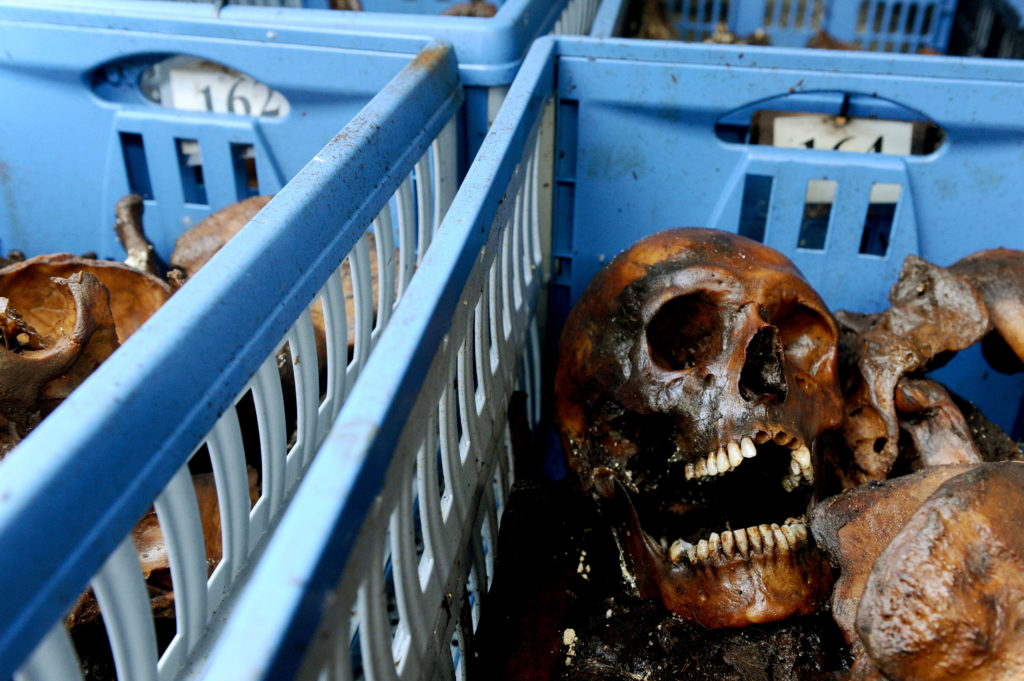Millions of victims were persecuted, tortured, imprisoned and killed under the totalitarian and authoritarian regimes of the twentieth-century Europe. The main goal of the European integration process is to ensure that fundamental rights and the rule of law are respected. Since it is well-known that misinterpretations of history can contribute to the promotion of policies of exclusion and thus incite hatred and racism, it is essential to preserve the memory of Europe’s tragic past, to honour the victims, to condemn the perpetrators and lay the foundations for the reconciliation, based on truth and memory. Bringing awareness to this matter is especially important in light of Slovenia’s forthcoming Presidency of the Council of the European Union and in the context of the discussion on the rule of law.
European integration was initially a response to the suffering caused by the two world wars and the Nazi tyranny that led to the Holocaust and the spread of totalitarian and undemocratic communist regimes through Central and Eastern Europe. As is clear from the European Parliament’s resolution on European conscience and totalitarianism, it is a fact that Europe will not be united if it is not able to form a unified view of its history.
During the time of Slovenia’s first Presidency of the Council of the European Union, a publication which was edited by Peter Jambrek, Ph.D., was published, entitled “Crimes of the Totalitarian Regimes” (Zločini totalitarnih režimov). In the foreword to the publication, the then-Minister of Justice, Lovro Šturm, Ph.D., emphasised that the totalitarian regimes experienced by Europe in the past century had succeeded in seizing and strengthening their power, not only through lies, but also through massacres or, as we would call it today, crimes against humanity. A common term for this is also “gross and systematic violation of fundamental human rights,” which, as stated in the Convention for the Protection of Human Rights and Fundamental Freedoms, also include the right to life. Countless lives were taken without a fair trial, and many convictions were formed using discriminatory law, without proving actual guilt or allowing a fair trial. Opponents of the totalitarian authorities and their laws were tortured and treated in an inhuman and degrading manner; sometimes, they were even forced to work in labour and concentration camps. In addition, the totalitarian authorities, according to Šturm, were also known for blatantly violating the freedom of expression, which was subject to restrictions, control and severe punishments if there was ever any criticism of the system. In addition to this, such regimes were characterised by discrimination based on sex, race, the colour of one’s skin, language, religion, nationality, social origin and political opinion.
Slovenia is the only country that has experienced all three totalitarianisms
As Šturm pointed out, totalitarianisms were directly or indirectly experienced by a large number of Europeans born before the fall of the Berlin Wall. Each country experienced the 20th century in a different way: some countries never experienced totalitarianism, while others had one or even two such regimes. The sad fact that makes Slovenia unique in this sense is that it is the only member state of the European Union that has experienced all three European totalitarianisms. “Respecting and nurturing the universal fundamental right to the personal dignity of all victims means preventing discrimination between them and ensuring equal treatment. The right to personal dignity is one of the few, if not the only fundamental personal freedom, that does not disappear when human life ends in the physical sense, but must continue to be respected after death,” Šturm emphasised, adding that in order to understand the present and be able to hope that the injustices of the 20th century are never repeated, critical knowledge of the violence and injustice caused by the totalitarian regimes in the last century of Europe is crucial. “History needs to be seen as it really was; namely, it is the only way to learn that violence, whether it is based on race, skin colour, religion, political belief or nationality, cannot lead to mutual respect and harmony which would allow people to live side by side in peace.”
Nina Žoher


